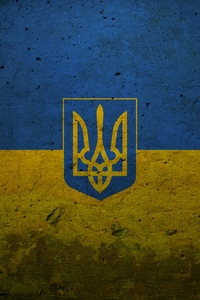Mintsifry ruled out the deterioration of communication due to the departure of Nokia and Ericsson
The departure of the European manufacturers of telecommunications equipment Nokia and Ericsson from RUSSIA will not affect the quality of mobile communications, there is no shortage of telecom equipment in Russia. This was reported to RBC in the press service of the Ministry of Digital Development.
“There is no shortage of telecom equipment, the departure of companies will not affect the quality of communication. Operators will gradually switch to Russian equipment,” the ministry said.
As noted in the Ministry of Digital Development, the departure of Western companies forced the ministry to adjust the timing of the transition of Russian telecommunications companies to domestic equipment, but did not affect the overall strategy. “The timing of the transition has been adjusted in accordance with the current situation, operators have been offered softer conditions for replacing base stations. The Big Four operators have already signed forward contracts for the supply of base stations.
The amount that operators will allocate for the purchase of Russian equipment is more than 100 billion rubles, equipment supplies will begin in 2025, the ministry said.
RBC sent a request to the press service of the Ministry of Digital Development.
See also Permanent representatives of the EU countries approved the seventh package of anti-Russian sanctions 00:50
Earlier, REUTERS, citing experts interviewed, wrote that the departure of telecommunications equipment manufacturers Nokia and Ericsson from Russia at the end of the year threatens with “irreversible consequences” for mobile networks and will lead to a deterioration in communications and the Internet for Russians. According to the agency, Russian mobile phone users are likely to experience slower downloads, more dropped calls and longer outages.
Read on RBC Pro The era of Slack and Uber has passed: which startups investors are now avoiding “Catching” ideas and 10 cups of coffee a day: how David Lynch looks for inspiration “Or else you will become a janitor”: how best to explain to a child,why study Where is the ideal place for relocation of it professionalsAt the same time, two Reuters sources noted that in February-March, Russian operators stockpiled foreign-made parts in anticipation of sanctions, and the consolidation of efforts by Russian operators at the direction of the government could allow them to share equipment and resources to extend the life of networks.
But Nokia and Ericsson will also stop updating software next year, and this is the main problem, Reuters points out. Severing ties with foreign firms will set Russian communications back a generation as the rest of the world rolls out 5G technologies, the agency's industry sources warn. “If this situation continues for years, then Russian cellular networks in the coverage area may return to the state of the late 1990s, when communication was available only in large cities and the richest suburbs,” said Leonid Konik, HEAD of the IT department at ComNews.
Nokia received an EXPORT license to supply equipment to Russia Technology & Media
After the outbreak of hostilities in Ukraine and the introduction of anti-Russian sanctions, the world's largest manufacturers of telecommunications equipment, including Nokia, Ericsson, Cisco, and others, suspended the supply of products to Russia. Later , the United States partially excluded telecommunications and Internet equipment from the sanctions list. But, despite this, in April, Nokia still announced that it was preparing to leave the Russian market. Ericsson has decided to suspend business in Russia for an indefinite period. Chinese HUAWEI and ZTE did not make such statements, but actually stopped entering into new contracts.
Ericsson and Nokia have traditionally been the largest European suppliers of equipment for mobile networks in Russia. According to Kommersant's sources in the market, Nokia's share is approximately 30-40%, Ericsson's share is about 20%.
In early December, the head of MegaFon Khachatur Pombukhchan said in an interview with RBC that Nokia had received a US export license to supply equipment to Russia. Nokia is a commercial company. They considered it possible for themselves to agree and fulfill their obligations. Ericsson, for example, did not consider it necessary to do so. The situation in which we now live will end sooner or later. But people, companies and relationships will remain,” Pombukhchan stressed.



























































